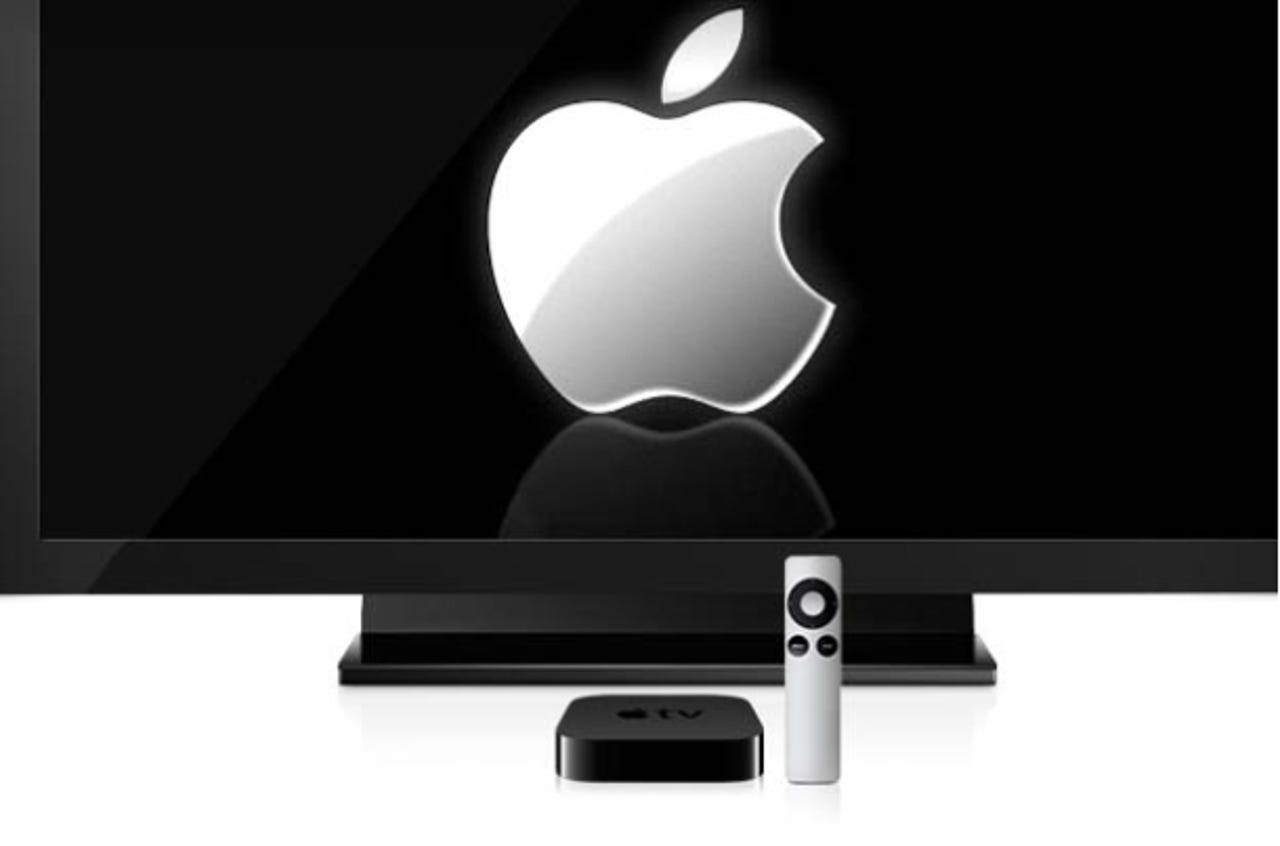Apple television: Where others failed, content could hold the key


The television industry is in a rut. There's hope that talk of an Apple TV could revitalize interest -- albeit one-sidedly -- in the humble television, that almost everyone in the developed world has in their house.
The Wall Street Journal recently reported that Apple was in talks with "some of the biggest U.S. cable operators" about pushing content to consumers using "an Apple device as a set-top box for live television and other content."
No mention of an Apple television. Not yet, at least.
I have two theories, based on the past few weeks. Either Apple is developing its own television but it's still in design phase in-house and yet to reach an outsourced manufacturing partner, or the long-awaited device is already in pre-production in the U.S. and Apple has a tight control (perhaps more so, considering the leaks out of Asia with the iPad mini and iPhone 5) over its manufacturing partners.
Or, there are no plans to dish out a fully-fledged television set for some time yet.
My bets are on the latter. Not because Apple can't make the television work, but nobody has yet been able to make the television work.
Sharp is in trouble and may leave the consumer television business. Toshiba also cut television production in a bid to return to some level of operating profit. Sony's television business is making a loss quarter-on-quarter and is now in crisis mode. Samsung, well, it's doing OK for the time being.
The entire television sector is falling down around itself.
As Business Insider notes, analysts are pointing towards two ends of the same string: Apple is pushing for U.S. cable content because it only has plans to develop its Apple TV set-top box, while another analyst believes an Apple television could "lock-in" users to the iPhone and iPad.
("Lock-in?" Another device likely won't lock in users to their phones or tablets. General consensus from the street suggests the vast majority are happy with their iPhones and iPads? Except, perhaps, my parents who still call me up regularly to ask me where the "back" button is on their iPad. I digress.)
The trouble is for Apple, and every other display or television manufacturer is that they last too long, and therefore are replaced perhaps once every three-five years. My television has stuck with me for four years. To use an Apple-ism, "it just works."
Televisions are low margin and replaced over many years, and customers don't always go back to the same manufacturer. Television and display makers don't have the same loyalty from their customers as smartphone or tablet makers, because televisions are passive devices. Without looking, can you tell me what brand your television is? (I had to check. Mine is a Sharp television.)
Unless Apple can bring an added something to the traditional television, it will find itself in the same rut as others.
Television makers so far have created devices and left the television content to others. There's no duopoly. It's two separate industries working on the same thing, but not together.
And, there's no doubt that Apple will. By working with cable operators and content providers, it's entirely possible that Apple will not only bring a television to the market but instead offer the more lucrative content offerings to the end-user.
After all, an iPhone and an iPad are just hardware devices. In spite of their consumer awe and polished aesthetics, it's the operating system and the software users want. It's what is inside that counts, rather than the 'slave'-like device that the software operates within.
As Daring Fireball's John Gruber noted: "What's the next $100 billion idea, and what would Apple need to do to set it up?" Perhaps it isn't television. Other television manufacturers have struggled to get even close to the $1 billion per quarter mark.
Apple is above all else a hardware company, Piper Jaffray analyst Gene Munster said at the Business Insider conference. The next logical step in its line-up of products is to offer a television. (It's not that Apple is running out of ideas, but there's very little that's 'new' the company can offer.)
There's no doubt in my mind that Apple could make the television "cool" again where others have failed. That said, the humble television mounted to your office wall, or sitting in your living room, or in the airport lounge flickering away with dozens of upcoming flights isn't an exciting product. Televisions just aren't exciting.
Apple likely can't leap into the television market and expect it to be its next $100 billion cash cow. There has been enough speculation, analyst rumblings and drop-hints from Apple chief executive Tim Cook already to suggest that the Apple TV is more than just a "beloved hobby" for the company. In my mind, there's no doubt that Apple will foray into the television business, but the company won't expect it to rise in the same as its smartphone or tablet division.
By Apple's historical standards, compared to its iPhone or iPad units, its venture into the television building business will likely be a company-controlled 'failure'.